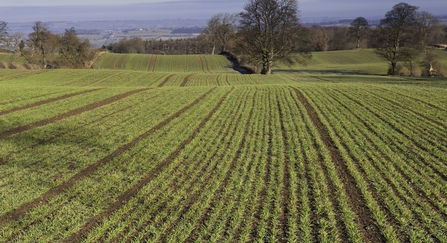Wildlife is under even more pressure than ever as basic rules which protect hedgerows and stop farmers from causing excessive river pollution ended on 31st December 2023. The National Trust, RSPB and The Wildlife Trusts are calling for immediate action to fill the gaps left by these vital protections.
Basic regulations known as ‘cross compliance’ had to be followed by farmers in order to receive rural payments between 2005 and 2023. The rules included not farming the land right up to the edge of rivers to ensure farm pollution and soil was not washed into the water – as well as protecting hedgerows and maintaining green cover on soils.
Following the UK’s exit from the European Union, the UK Government announced these rules would cease to exist after 31st December 2023 and be replaced by new UK ones. The Department for Environment, Food and Rural Affairs (Defra) has not confirmed if protections for nature will be maintained – and the absence of rules means that farmers are free to cut hedges in the spring and summer which risks harming nesting birds. It could also mean that more farm pollution and soil is washed into rivers which are already under huge pressure from excessive nutrients caused by manure, soil and other pollutants.

